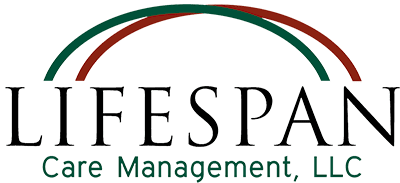As we age, securing proper health care, financial stability, and daily living supports becomes more important. For seniors and people needing long-term care in New Jersey, there are numerous programs designed to ease financial burdens, provide health services, and help individuals maintain independence and dignity in their own communities. Whether you’re a caregiver or a senior trying to navigate these options for yourself, understanding what’s available can make a huge difference in the quality of care and peace of mind you or your loved ones experience.
1. Medicare — The Foundation of Senior Healthcare
For most people 65 and older, Medicare is the primary health coverage. It comprises several components:
- Part A (Hospital Insurance) covers hospital stays, skilled nursing facilities, hospice care, and some home health care.
- Part B (Medical Insurance) covers doctor’s visits, outpatient care, preventive services, and durable medical equipment.
- Part D (Prescription Drug Coverage) assists in paying for medication.
- Part C (Medicare Advantage) combines Parts A, B, and often D under a single health plan. Some plans also include dental, vision, or fitness benefits.
2. Medicaid (NJ FamilyCare)
For seniors with low income and limited assets, Medicaid, known in the state as NJ FamilyCare, plays a crucial role. It covers health care services not fully provided by Medicare, including:
- Nursing Home Services: Covers long-term care in a nursing facility.
- Home and Community-Based Services (HCBS): Allows eligible seniors to stay at home with assistance from health aides, therapists, and care managers.This program is commonly referred to as Long-term services and supports (LTSS) refer to a wide range of services that assist individuals who need help with daily activities due to aging, chronic illness, or disability. Those eligible should request a Case Manager to o an in-home assessment in order to set up the array of appropriate services.
- Personal Care Services: Assistance with daily activities, medication management, and meal preparation as part of LTSS.
3. PAAD (Pharmaceutical Assistance to the Aged and Disabled)
The Pharmaceutical Assistance to the Aged and Disabled (PAAD) program is a valuable help for low-income seniors. It reduces medication copays to $5 for generic drugs and $7 for brand-name drugs, making prescription medication more affordable and accessible.
4. Senior Gold Prescription Discount
For those who exceed PAAD income limits but still need help paying for medication, Senior Gold offers 50% discounts once annual out-of-pocket expenses surpass a certain amount. The program provides financial relief to a wider range of seniors with income above PAAD criteria.
5. Utility and Housing Assistance
Seniors can apply for utility help through programs like:
- Universal Services Fund (USF) — assists low-income utility customers by reducing their energy bills.
- Lifeline Credit: provides a $225 annual utility credit to help ease financial stress.
- Property Tax Relief: The Senior Freeze (Property Tax Reimbursement) program lets eligible homeowners freeze their property taxes at a base amount, protecting them from future increases. Additionally, the Property Tax Deduction and Homestead Benefit can provide further reductions.
6. Department of Human Services — Division of Aging Services
New Jersey’s Division of Aging Services oversees numerous programs to help seniors live safely in their own homes and avoid nursing facilities when appropriate. Some key programs include:
- JACC (Jersey Assistance for Community Care) — in-home services, meal delivery, and caregiver respite for seniors who are not eligible for Medicaid.
- Statewide Respite Care — temporarily relieves caregivers who need a break from their responsibilities.
- Congregate Housing Services — available in certain facilities, offering supportive services alongside affordable housing.
7. PACE (Programs of All-Inclusive Care for the Elderly)
For seniors 55 and older who require a nursing home level of care but wish to stay in their community, PACE offers an all-inclusive health care team. Services typically include:
- Primary and specialty health care
- Medications
- Adult day care
- Occupational and physical therapy
- Home health care
- Transportation to and from PACE centers
- Support services to help participants maintain their independence
8. Veterans’ Benefits — Aid and Attendance and Housebound Benefit
For veterans and their spouses, additional financial aid may be available through the Department of Veterans Affairs. Note: Each county has a staff of VA benefits coordinators who assist with accessing VA benefits.
- Aid and Attendance Benefit: Helps pay for in-home care, assisted living, or nursing home care.
- Housebound Benefit: An additional pension for veterans who are substantially confined to their homes due to health issues.
New Jersey offers a diverse range of programs and benefits to support seniors in living safely, independently, and with dignity in their later years. From health care coverage through Medicare and Medicaid to utility assistance, medication discounts, caregiver support, and specialized programs like PACE and Aid and Attendance, there are resources available to match a range of needs.
The key to accessing these benefits is understanding eligibility criteria, application procedures, and available services. Often, this involves navigating a maze of paperwork and requirements — but help is available. Local Aging and Disability Resource Connection (ADRC) offices, social workers, health care providers, and veteran service organizations can be valuable guides in identifying the programs that best match your or your loved one’s situation.

